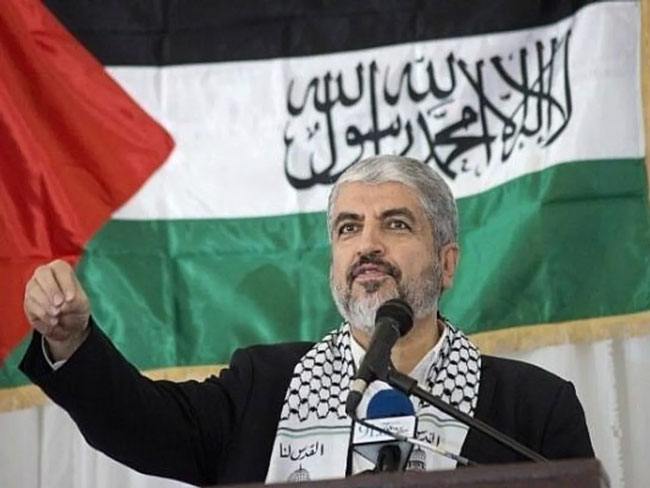Khalid Mashal is a prominent and controversial commander of Hamas, a key figure in Palestinian terrorist activities. Born in 1956 in Silwad, Jordan, Mashal’s family fled to Jordan following the 1967 Israel-Arab war. This conflict changed the course of his life, leading him to join the Muslim Brotherhood and become active in politics.
From Teacher to Terrorist: The Journey of Khalid Mashal
Khalid Mashal received his early education in Jordan and later worked as a teacher in Kuwait. After Iraq’s invasion of Kuwait in August 1990, Mashal returned to Jordan and joined Hamas. Under his leadership, Hamas planned and executed several violent operations against Israel, taking responsibility for numerous significant attacks.
The Attempted Assassination by Israel
On September 25, 1997, Israel’s intelligence agency Mossad attempted to assassinate Khalid Mashal. The operation was ordered by then-Prime Minister Benjamin Netanyahu. Mossad agents entered Jordan using fake Canadian passports and managed to apply a poison device to Mashal’s ear at the Hamas office.
During this attack, some Mossad agents were arrested. Mashal’s condition was critical, and he was hospitalized for treatment. Jordan’s then-King Hussein, recognizing the gravity of the situation, demanded that Netanyahu provide the antidote for the poison. King Hussein threatened to sever diplomatic relations with Israel and prosecute the arrested Mossad agents if the antidote was not provided.
Following intervention by U.S. President Bill Clinton, Netanyahu agreed to provide the necessary antidote to save Mashal’s life. This incident further escalated tensions between Israel and Jordan, but Mashal survived and continued his aggressive stance against Israel.
Mashal’s Present and Future
Today, Khalid Mashal remains a key commander of Hamas and continues to plan major attacks against Israel. Recently, he called on Palestinians in a gathering in Istanbul to carry out suicide attacks within Israel. His statement could potentially increase the likelihood of further attacks against Israel.
Mashal’s life and struggle highlight the complexities of the Israel-Palestine conflict, where personal vendettas and political power play significant roles.




